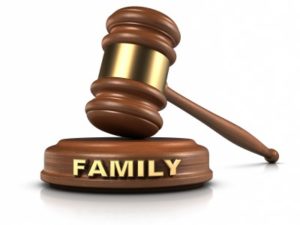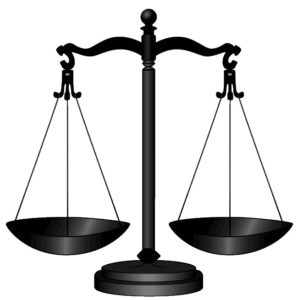
Excess Litigation Results in Holding Fee Award Non-Dischargeable in Bankruptcy
Sharp  Thinking
Thinking
No. 133 Perspectives on Developments in the Law from Sharp-Hundley, P.C. September 2016
In Family Law Context…
Excess Litigation Results in Holding Fee Award Non-Dischargeable in Bankruptcy
By Rebecca Reinhardt, rebecca@sharp-hundley.com, 618-242-0200

Reinhardt
The Seventh Circuit U.S. Court of Appeals has ruled that attorney fees ordered to be paid by one spouse to the other spouse’s attorney in a domestic proceeding, as a result of that party’s unreasonable approach to litigation, are non-dischargeable in bankruptcy.
In Trentadue v. Gay, __ F.3d __, 2016 WL 4791858 (7th Cir. 2016), debtor/ex-husband Christopher Trentadue was ordered to pay his ex-wife’s attorney Julie Gay “overtrial” attorney fees in a Wisconsin court proceeding. “Overtrial” is a doctrine developed in Wisconsin family law cases that may be invoked when one party’s unreasonable approach to litigation causes the other party to incur extra and unnecessary fees.
A court may sanction a party who has engaged in overtrial by ordering that party to pay the opposing party’s attorney fees. Under state law, sanction furthers two objectives: providing compensation to the victim for fees unnecessarily incurred and deterring unnecessary use of judicial resources. See In re Attorney Fees in Yu v. Zhang, 248 Wis. 2d 913, 924 (2001).
Proceedings Below: In Trentadue, the Wisconsin state court proceeding involved child custody, health insurance and child support issues. It was a protracted event spanning three years. The court found that Trentadue committed “significant overtrial” and ordered him to pay $25,000 of his ex-wife’s attorney fees directly to Gay.
 Shortly thereafter he filed a Chapter 13 bankruptcy. In a Chapter 13 bankruptcy, domestic support obligations payable to the former spouse are entitled to priority and the debt must be paid in full for the plan to obtain confirmation. 11 U.S.C. § 507; 11 U.S.C. § 1322(a)(2). Furthermore, domestic support obligations are excepted from the general discharge granted upon completion of Chapter 13 plan payments. 11 U.S.C. §§ 523(a)(5), 1328(a)(2).
Shortly thereafter he filed a Chapter 13 bankruptcy. In a Chapter 13 bankruptcy, domestic support obligations payable to the former spouse are entitled to priority and the debt must be paid in full for the plan to obtain confirmation. 11 U.S.C. § 507; 11 U.S.C. § 1322(a)(2). Furthermore, domestic support obligations are excepted from the general discharge granted upon completion of Chapter 13 plan payments. 11 U.S.C. §§ 523(a)(5), 1328(a)(2).
In response to Trentadue’s petition, Gay filed a claim for the unpaid overtrial award and classified it as a non-dischargeable support obligation. Trentadue objected (1) that the award was not to his former spouse and thus dischargeable, and (2) that the overtrial award was intended to be a punishment and not in the nature of support.
The bankruptcy court determined that it was in the nature of a support obligation and thus non-dischargeable. In analyzing the state court decision, the bankruptcy court determined the attorney fee award was not punishment, but meant to compensate for the financial hardship Trentadue had caused the custodial parent, which resulted in harm to the children. Trentadue appealed and the district court affirmed this decision. He appealed to the Seventh Circuit.
The Decision: The first issue he raised, that the award was not payable directly to his former spouse, was ruled not properly before the Seventh Circuit as it was not preserved in the lower court. “However, virtually every lower court within the Seventh Circuit has determined that an award of attorney fees incurred by a former spouse in dissolution proceedings are nondischargeable, notwith-standing a provision that fees be paid directly to the attorney.” In re Johnson, 2012 WL 2835462 (Bankr. C.D. Ill. 2012). While § 523(a)(5) requires the debt be owed to or recoverable by the other spouse, courts instead have looked to the nature of the debt and not to whom the debt is owed.
 In addressing the second issue raised by Trentadue, that the debt was punitive and thus not in the nature of a support obligation, the Seventh Circuit affirmed the finding that the fee award was not punitive. In making this determination the Seventh Circuit court found that the state court considered the financial situation of both parties and reviewed the act’s purpose. The court noted that the award had all the hallmarks of a compensatory award meant to put the ex-wife and the children in the same place they would have been had Trentadue not pursued his overly litigious course. As a result, the fee award was determined to be in the nature of a support obligation and thus non-dischargeable.
In addressing the second issue raised by Trentadue, that the debt was punitive and thus not in the nature of a support obligation, the Seventh Circuit affirmed the finding that the fee award was not punitive. In making this determination the Seventh Circuit court found that the state court considered the financial situation of both parties and reviewed the act’s purpose. The court noted that the award had all the hallmarks of a compensatory award meant to put the ex-wife and the children in the same place they would have been had Trentadue not pursued his overly litigious course. As a result, the fee award was determined to be in the nature of a support obligation and thus non-dischargeable.
Illinois Impact: In Illinois, the Marriage and Dissolution of Marriage Act provides for a division of attorney fees based on the economic situation of the parties, 750 ILCS 5/508, and a trial court  may award attorney fees as sanctions when a party’s misconduct has caused another party to incur fees. See In re Marriage of Bradley, 2011 IL App (4th) 110392 ¶ 28.
may award attorney fees as sanctions when a party’s misconduct has caused another party to incur fees. See In re Marriage of Bradley, 2011 IL App (4th) 110392 ¶ 28.
While an attorney fees award based solely on the economic situation of the parties in a domestic support situation is unquestionably nondischargeable per the statutory language and the Trentadue decision, arguably so would be the sanctions for misconduct that have caused another party to incur fees. The sanction of an attorney fee award for causing another party to incur fees is compensatory in nature and not solely punitive. This same logic also flows to both criminal and civil contempt attorney fees award in domestic support matters, so long as the award was to compensate the other party for fees incurred in the action.
SHARP-HUNDLEY, P.C.
1115 Harrison, P.O. Box 906, Mt. Vernon, IL 62864 • Telephone 618-242-0200 • Facsimile 618-242-1170
www.sharp-hundley.com
Business Transactions • Litigation • Financial Law • Real Estate • Corporate • Commercial Disputes • Creditors’ Rights •
Arbitration & Mediation • Estate Planning • Probate • Family Law
133
